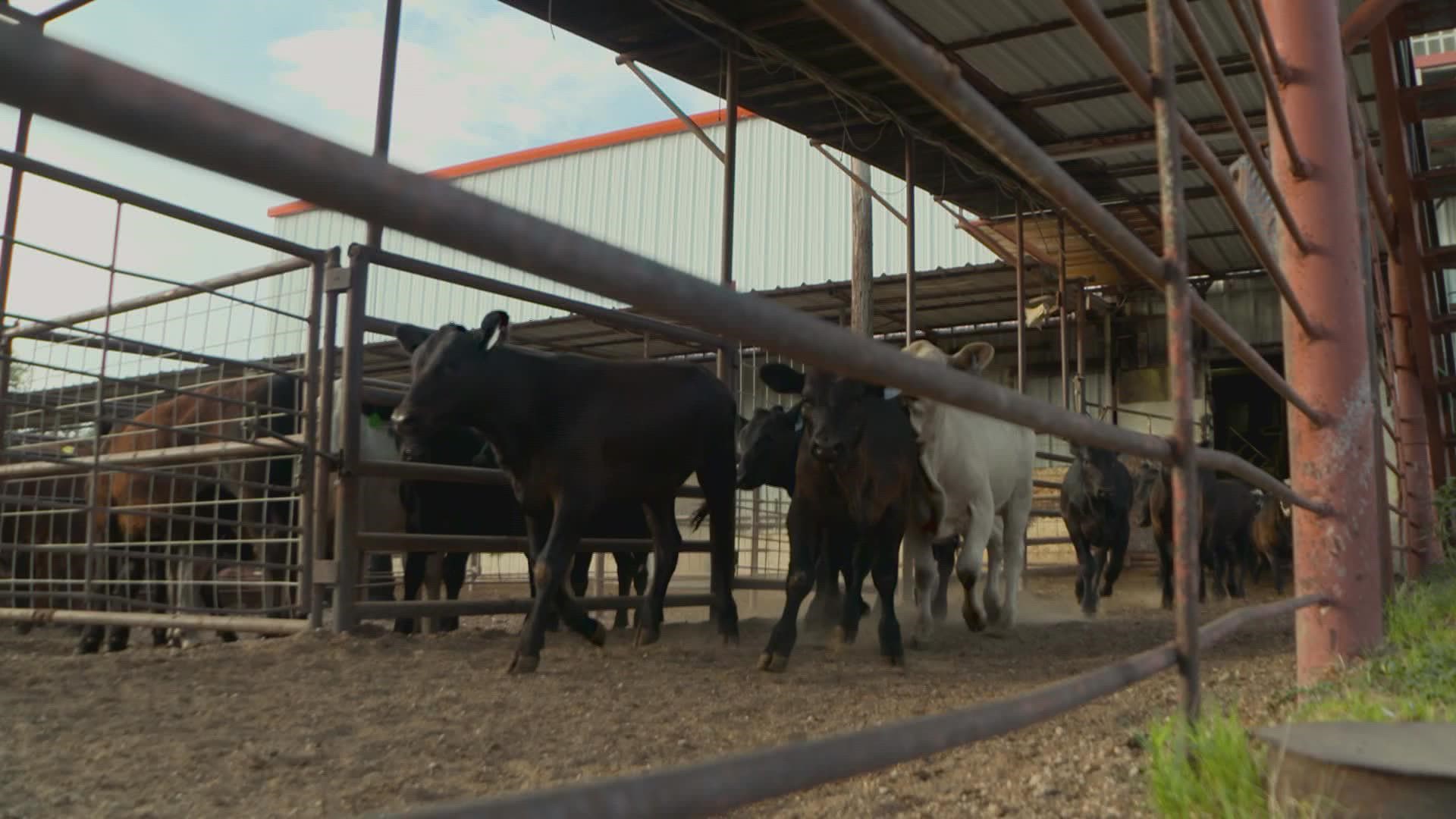DECATUR, Texas —
Inside of the Decatur Livestock Market, buying and selling cattle is normal.
This week, however, the amount of ranchers that rushed there to sell their cattle, was not.
The livestock market’s owner, Kimberly Irwin, told WFAA the drought is the culprit. It has created challenging conditions around feeding livestock, and it’s forcing ranchers to sell their cattle in droves.
Martin Muñoz, a rancher in Covington, showed up to sell his cattle and buy others at a low cost on Monday.
“I need some money,” Muñoz said. “I’ve got a family I need to feed. I need to swap in some cattle.”
The lingering drought began to lower his water tank last year. It’s where he secures water to feed his cattle.
“My tank’s got no water. Nothing," Muñoz said.
His grass is gone due to the drought, and the price of hay has skyrocketed.
Several ranchers told WFAA that even hay is hard to come by these days, and it’s not the healthiest option for raising cattle and calves.
The owner of the exchange says ranchers brought more than 2,500 head of cattle this week, a 50% increase from the 1,500 head they would receive during a normal week this time of year.
On Monday, the auction, that usually ends at three in the afternoon, was expected to last until three in the morning.
TCU’s Ranch Management Program Interim Director Jim Link said it’s a snowballing effect on Texas’s top commodity.
“2011 was pretty tough, but it wasn’t as hot as this as long. We didn’t have the rain, but we didn’t have the 90 days of triple digit weather,” Link said.
He doesn’t anticipate the drought’s impact on cattle will impact the supply chain or an increase in meat prices.
“It really wont effect the supply as much as a lot of people would think,” Link said. “A lot of these cows are going to town and they’ll be hamburger. The general populations demand is for hamburgers.”
What happens next will depend on the amount of rainfall this fall.
“If we get two or three more years of this [drought] in a row, it’s really gonna get tough,” Link said.
Munoz remains optimistic.
“The good Lord, one of these days will send us some water,” Munoz said.
When people’s livelihoods are on the line, the rain can’t come soon enough.

